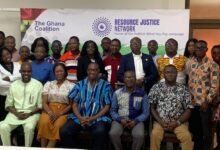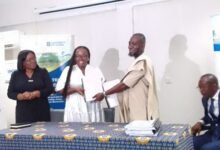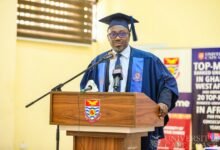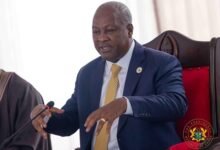
The Ministry of Lands and Natural Resources will by 2023 establish an oil milling factory to process oil palm in the country.
The milling factory is to create an already market for oil palm produced by beneficiaries of the oil palm seedlings programme being implemented by government as an alternative livelihood project to forestall illegal mining.
The move is in collaboration with Richie Plantations Limited, the company contracted by the ministry to develop the oil palm seedlings for Ghanaian farmers.
The oil palm seedlings project is being undertaken by the ministry through the Minerals Development Fund (MDF).
Chief Executive Officer of Richie Plantations, Richard Quansah, said the factory would address concerns about the disposal of harvested oil palm by the beneficiaries.
He was speaking here at Dunkwa-on-Offin in the Upper Denkyira East municipality during the launch of the distribution of one million oil palm seedlings for the 2019 planting season.
Last year, he said more than 1.5 million oil palm seedlings were distributed to farmers in the Central Region adding that this year’s distribution would be expanded to cover the Ashanti, Western and Eastern Regions.
Currently, Mr Quansah noted that the project implementation was challenged by the lack of access to land for the beneficiaries to start their plantations.
He called on the ministry to step up engagements with the chiefs and traditional authorities to make available land for the oil palm plantations in their various jurisdictions.
So far, he said the project has become a ‘safe haven’ for former illegal mining operators and urged for support to realise the full potential of the oil palm project.
Minister of Lands and Natural Resources, Kwaku Asoma-Cheremeh, said the ministry would expand the project to other regions to create employment and improve livelihoods.
He appealed to the chiefs to support the project by voluntarily making lands available to the beneficiaries and noted that the project has contributed significantly to government’s fight against illegal mining.
Board Chairperson of MDF, Esther Happy Egyani, said the MDF would undertake evaluation and assessment of the project to examine the socio-economic benefits and ensure value for money.
This, she said, would include inspection and monitoring of farms to ensure the funds were being utilised properly to grow the plantations.
To ensure its sustainability, she said the MDF would hold discussions with manufacturing industries including pharmaceuticals to create a market for the oil palm production industry in Ghana.
Madam Egyani said the MDF would also form farmer-based groups to strengthen bargaining power for an improvement in their livelihoods.
Nana Agyei Nkyiriyeh II, Chief of New Obuasi and acting President of the Denkyira Traditional Council urged the ministry to liaise with the Ministry of Food and Agriculture to create avenues for export for the oil palm plantations.
He reiterated the support of the council in the implementation of programmes and measures to curb illegal mining and urged government to help in dealing with challenges in the small scale mining sector.
From Claude Nyarko Adams







